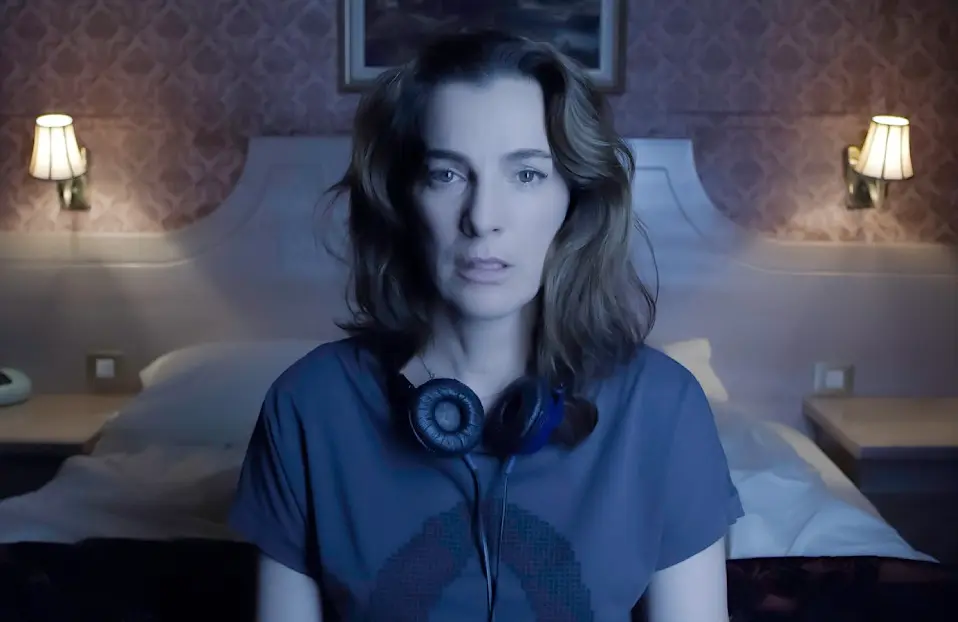Losing Alice Is About the Midlife Crisis Hollywood Doesn’t Talk About
-
 Ayelet Zurer in Losing Alice. (Apple TV+)
Ayelet Zurer in Losing Alice. (Apple TV+)Losing Alice, the new thriller debuting on Apple TV+, comes to us from Sigal Avin, an American-Israeli writer-director who mostly works out of Tel Aviv but has had some of her work adapted here, notably The Ex List for CBS. This eight-parter (like so many streaming series, it’s more super-sized film than TV show) explores the slow unraveling of a forty-something film director who falls for a script from an up-and-coming writer… and falls for the writer, too. And here’s the twist: They’re both women.
I’m so old that I can remember when the only female director anyone knew of was Leni Riefenstahl. It’s easy to think that that’s all changed. It hasn’t. Despite some high-profile stars, and a few notable studio exceptions like FX, the lion’s share of directing credits goes to lions, not lionesses. Losing Alice, besides being a seductively-paced drama you may have trouble shutting off, is also a backdoor commentary on women who disappear from the entertainment business around middle age, both in front of the camera and behind it.
Ayelet Zurer plays Alice, a director married to David (Gal Toren), an actor. While David’s career is just hitting its stride, Alice is trying to get hers started again after taking a break to raise their kids. By chance, or should I say “by chance,” she finds herself on the train with a young screenwriter named Sofi (Lihi Kornowski), who juuuust happens to have sent her script to David.
There are all kinds of red flags in the opening episode, and yet Alice quite plausibly ignores them. She’s pushing fifty in an industry that worships youth. Sitting at home trying to write, contractors from the home next door peering into her window, she feels completely blocked and irrelevant. Here comes this delicious young thing telling her she adores her (and her husband) and would love it if she directed her in an erotic thriller (with her husband). Alice knows she’s making a Faustian bargain, and what makes it more compelling, she’s doing it with the quiet desperation of a woman watching her life slip away from her.
Alice sincerely loves David, yet there is growing and unresolved tension between them. He doesn’t quite say, but David wishes Alice would stay home with the children — partly because he’s a man, partly because he doesn’t want his career overshadowed by her comeback. Alice, of course, is a little resentful of her husband’s ability to get cast in a movie where he has sex with someone Sofi’s age. She overconfides in Tamir, the married doctor living next door. And if this is the tinder, then Sofi is the match. She has a way of showing up unannounced in places and wreaking maximum havoc before she leaves. On the other hand, Alice also clearly likes a little danger, and sees a little of her younger self in Sofi. (Whenever they share a car together, they’re two peas in a pod.)
The nearly seven-hour running length of Losing Alice allows the drama to drip out and allows Avin to make her characters more well-rounded than your typical film-noir figures. Just when you think things are going to spin out of control, Alice and David have a moment of normalcy, or Sofi reveals a side of her that suggests she’s more of a cocky artiste than femme fatale. At least for the first three hours, anyway.
Like many films with a film inside of it, Losing Alice enjoys blurring the line between fantasy and real life, or should I say “real life,” since everyone here works in the movies. In one scene, David tries to understand why, of all the scripts in the world, Alice would want to make her comeback directing a script in which her actual husband makes love to someone half her age.
“There’s something kinda cool seeing you with another woman,” she says coolly.
He considers this, then counters with, “As long as you’re the one who can say ‘cut.’” Like any long-running couple, these two know how to generate sexual tension — but the problem here is that it isn’t a fantasy in which the woman plays the director and the man plays the actor having sex with a younger woman. The line between fantasy and reality is gone. The chance this will end badly is real.
The old TV model used to be, sell us your show and we’ll Americanize it. But looking just at product coming out of Israel’s fertile hit factory, that is hit-or-miss proposition (Baker and the Beauty, anyone?). So why not just show the original? I would point to Sacha Baron Cohen’s performance as a Mossad plant in The Spy, as proof that a compelling performance transcends country and language. But there is one drawback to this approach: Losing Alice is subtitled. The good news is that Apple TV+ provides audio description for every single show it offers (in seven languages!). So if you don’t want to read the dialogue, you don’t have to — just turn on Audio Description in the show’s, or your Apple device’s, settings, and an English-language narrator will read it for you.
The only reason I think Losing Alice would be worth remaking in America is that you can set it in the entertainment industry’s fraught #metoo era, which would give the story an edge that is lacking in this Israeli production. Also, it would give some quality work to a few more women in Hollywood.
Losing Alice debuts January 22nd on Apple TV+, with new episodes dropping on Fridays.
Aaron Barnhart has written about television since 1994, including 15 years as TV critic for the Kansas City Star.
TOPICS: Losing Alice, Apple TV+